


WELCOME TO THE smallbiz BLOG
Smallbiz BLOG
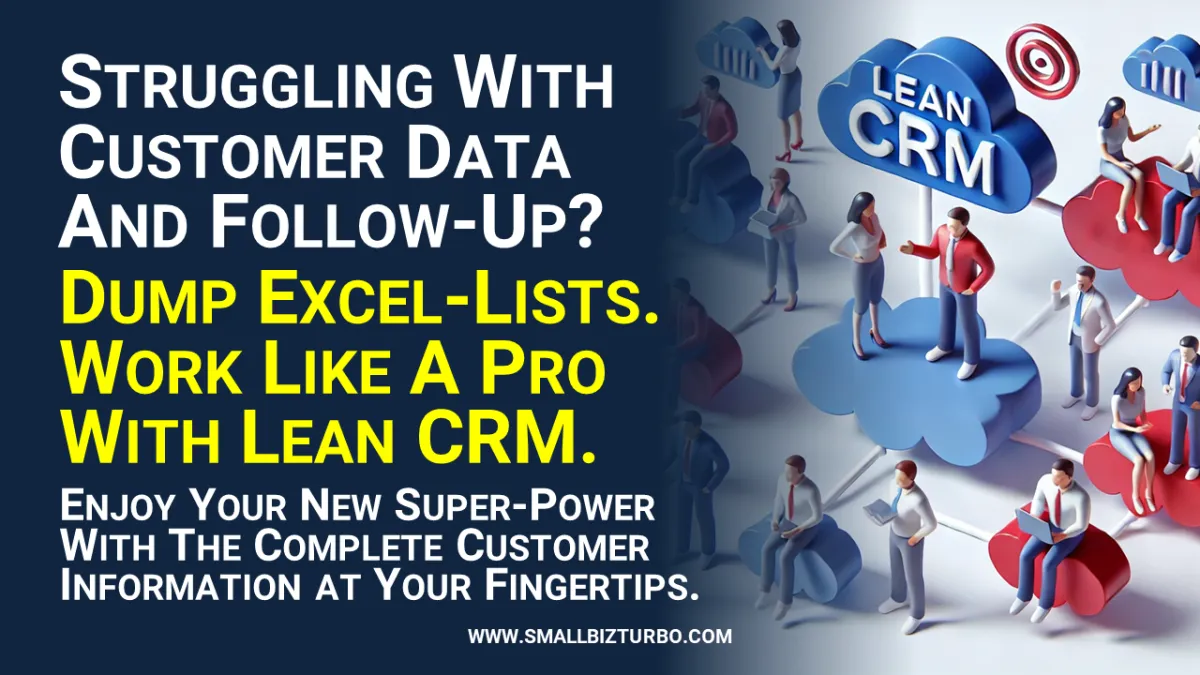
Unlock Efficiency and Growth with a Lean CRM-System
In today's fast-paced world of small business, staying organized and maintaining strong relationships with customers is crucial for success. But lots of small businesses have trouble keeping their leads and customers organized. They often use old-fashioned tools like spreadsheets and sticky notes. This not only makes them slower, but also puts them at risk of missing out on valuable opportunities.
The Lean Customer Relationship Management (Lean-CRM) system of SmallBizTurbo is a game-changer for small businesses looking to streamline operations, improve customer relationships, and drive growth. In this blog post, we'll look at why a Lean CRM system is crucial for small businesses, show you how it can make an impact, and give you some tips on how to get the most out of this powerful tool.
A Streamlined CRM System is Crucial for Small Businesses
Running a small business is a lot like juggling. You've got to keep your eye on a lot of different things, like marketing, sales, customer service, and operations. At the end of the day, you've got to be able to manage leads and customer interactions effectively. It all starts with marketing.
Your goal is to grab the attention of potential customers, build trust, and show them why your business is the right choice. But attracting leads is just the first step. The real challenge is in managing these leads and turning them into loyal customers.
Think about all the different things you have to do to manage leads and customers. You've got to keep track of every phone call, email, and message, schedule follow-ups, manage appointments, store important documents, and keep an eye on orders and payments. Without a system in place, it can quickly become overwhelming.
You might find yourself searching through loads of emails, struggling to remember the details of a past conversation, or missing a follow-up because you lost track of the lead. So, what's the result? That means lost opportunities and a negative impact on how well your business is doing.
A good CRM system makes it easy to keep all your customer data in one place. With a Lean CRM, you can easily see every interaction you've had with a customer, so you can provide personalized service and follow up at the right time. This not only helps you close more sales, but it also builds stronger relationships with your customers. Plus, having all your data in one place means you're less likely to make mistakes and you can be sure nothing gets missed.
One of the biggest myths about CRM systems is that they're a waste of time. While traditional CRMs can be a bit clunky, a Lean CRM is designed to be simple and efficient. It doesn't overload you with unnecessary features. It focuses on the essentials, so you can manage your leads and customers without spending hours on data entry. This is especially important for small businesses, where time is a precious commodity.
Plus, a Lean CRM system helps your team work together more effectively. In a small business, different team members often handle different parts of customer interactions. For instance, one person might be in charge of sales, while another handles customer support. A Lean CRM makes sure that everyone has access to the latest info, which makes it easier for your team to work together and give your customers a smooth experience.
But the best reason to use a Lean CRM is that it can grow with your business. As your business grows, managing your customer relationships gets more and more complex. A Lean CRM lets you manage this growth without getting weighed down by complicated systems or processes. No matter if you're adding new team members, expanding your services, or reaching new markets, a Lean CRM gives you the flexibility and efficiency you need to keep up.
Here Are Some Examples of Why Using a Lean CRM Is a Good Idea
Picture this: You're running a small business that specializes in home renovation services. A potential customer gives you a call to get a quote. You have a quick chat on the phone where they tell you what they need. With a Lean CRM, you can quickly log the details of the conversation, schedule a follow-up appointment, and set a reminder to send them a quote. When the customer calls back a week later with more questions, you can quickly pull up their info and pick up where you left off.
Now, think about what it would be like without one. If you don't have a CRM system, you might have jotted down notes from the initial call on a piece of paper or in a spreadsheet. A week later, you can't find those notes, or worse, you've forgotten some of the details. This not only wastes time but also frustrates the customer, who may decide to take their business elsewhere.
Another example is a small business that makes personalized products, like custom-made jewelry. Each customer order has a lot of moving parts, from the initial design consultations to production and delivery. Keeping track of all these steps manually can be a bit overwhelming, especially as your business grows and the number of orders increases.
A Lean CRM makes it easier by letting you track each order from start to finish. You can see at a glance where each order is in the production process, schedule follow-ups with customers, and make sure everything runs smoothly.
There's more to a Lean CRM than just making things more efficient. It also helps you market your products or services better. A Lean CRM lets you track customer interactions and preferences, so you can group your customers and market to them in the right way. For instance, if you know that a group of customers is really interested in a specific product, you can create targeted marketing campaigns to promote that product.
This not only makes it more likely you'll make a sale, but it also strengthens your relationship with your customers by showing you understand what they need.
On top of that, a Lean CRM can help you spot trends and opportunities. Your CRM can help you understand your customers better, as well as what they buy and what the market is doing. This info can help you make business decisions that drive growth. For instance, if you see that a certain product is selling well in a particular area, you might decide to focus your marketing there or develop similar products to meet that demand.
Plus, a Lean CRM can be adapted to fit changing business needs. No matter if you're launching a new product, expanding into a new market, or adjusting your services, a Lean CRM lets you make these changes without disrupting your operations. This flexibility is especially helpful for small businesses, which often need to change direction quickly in response to market conditions.
What It’s Like to Run a Successful Local Small Business with Lean CRM
For a lot of entrepreneurs, switching to a Lean CRM system is a game-changer. Let's say you're a small business owner who runs a local bakery. In the past, the owner kept track of customer orders, deliveries, and special requests on paper and in their memory.
As the business grew, this approach just wasn't feasible anymore. Sometimes orders got missed, customer preferences were forgotten, and the owner ended up spending more time managing the chaos than actually baking.
The owner was tired of the inefficiencies, so they decided to implement a Lean CRM system. The difference was incredible. With the CRM, the owner could easily track every order, set reminders for follow-ups, and even send automated thank-you notes to repeat customers. The system also gave the owner a better idea of what customers liked, so they could get ready for busy times. As a result, the bakery not only ran more smoothly but also saw an uptick in customer satisfaction and repeat business.
Another case in point is a local gym owner who used a Lean CRM to manage member relationships. Before they started using the CRM, the gym was tracking member sign-ups, renewals, and class schedules on spreadsheets. This manual system was prone to errors, and important tasks like follow-up calls or membership renewals were often overlooked.
Once the gym owner got the Lean CRM up and running, it was a breeze to keep track of all the members, send out automated reminders for class sign-ups, and keep tabs on who was showing up. The system also let the owner offer personalized promotions, like discounts on membership renewals for loyal members. The result was a more engaged member base, higher retention rates, and a smoother operation overall.
These examples show how a Lean CRM can really transform a small business. By making things more efficient, building better relationships with customers, and giving them useful insights, a Lean CRM lets small business owners focus on what they do best—whether that's baking, fitness training, or anything else they're passionate about. It takes the weight off their shoulders when it comes to manual processes, letting them run their businesses more efficiently and effectively.
My Key Five Action Points for You
1. Simplify your Processes: Start by implementing a Lean CRM system that's easy to use and tailored to your business needs. This will help you simplify your processes. This'll help you manage your leads and customers more efficiently, so you can focus on growing your business.
2. Keep Your Data in One Place: Use your CRM to store all customer information in one place. This lets you see the full picture of each customer's history, so you can give them the personalised service they deserve.
3. Boost Team Collaboration: Make sure everyone on your team can access the CRM. This'll help your team communicate and work together better, which means your customers will get a more consistent and professional experience.
4. Automate Where Possible: If you can, automate as much as you can. Your CRM has features that can help you streamline routine tasks like follow-up reminders, appointment scheduling, and data entry. This'll save you time and cut down on the risk of mistakes.
5. Leverage Insights for Growth: Make the most of your CRM data to get insights into customer behavior, sales trends, and market opportunities. This info can help you make decisions that drive growth and shape your business strategy.
If you follow these steps, you can use a Lean CRM to transform your small business. You'll not only work more efficiently, but you'll also build stronger relationships with your customers and set your business up for long-term success.
Ready to Take Your Business to the Next Level?
I suggest starting with a test so you know where you stand. Our Business Health Check is ready for you. Just click!
CLICK HERE to Start the Engine of your FREE BUSINESS HEALTH CHECK
#DecentWebsite
#PremiumStrategy
#OnlineScheduling
#StayingCompetitive
#CustomerRentention
#RevenueFromOnlineStore
#RelationshipManagement CRM
#SocialMediaStrategy
#ManagingFinances
#Communications
#NewCustomers
#PathToGrowth
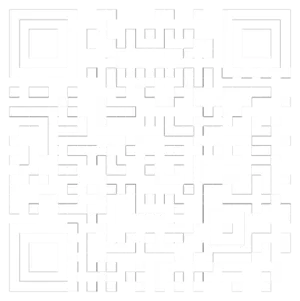
Copyright 2026 Chatbo LLC - All Rights Reserved - ^^^


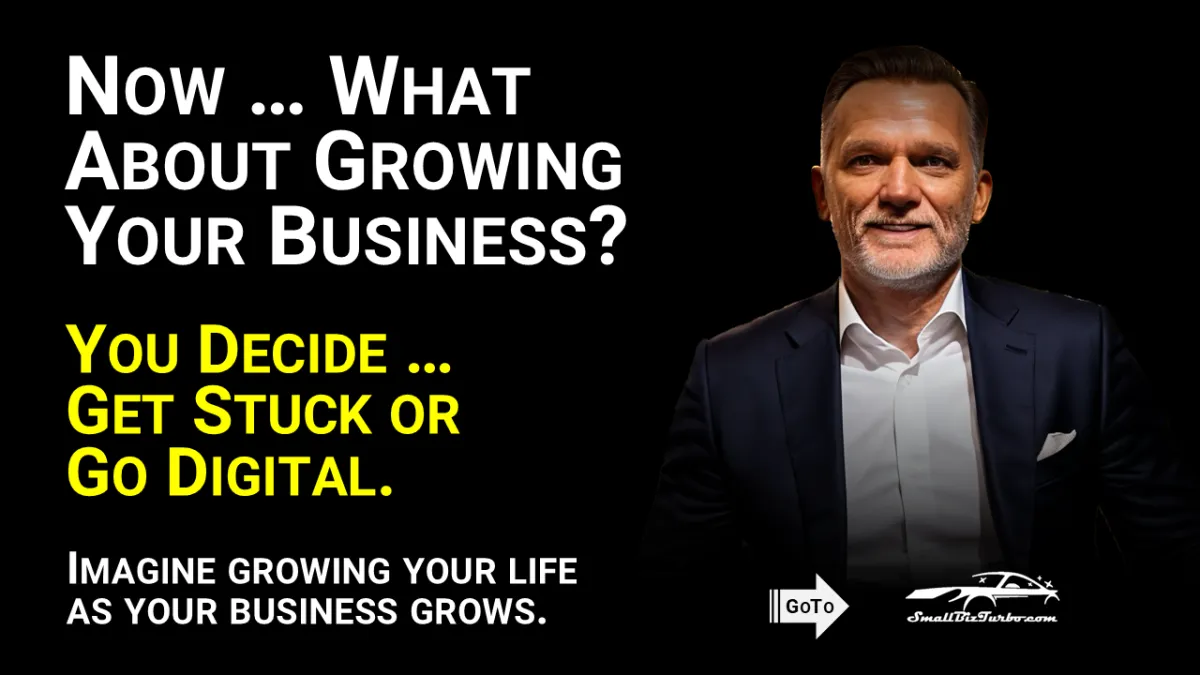
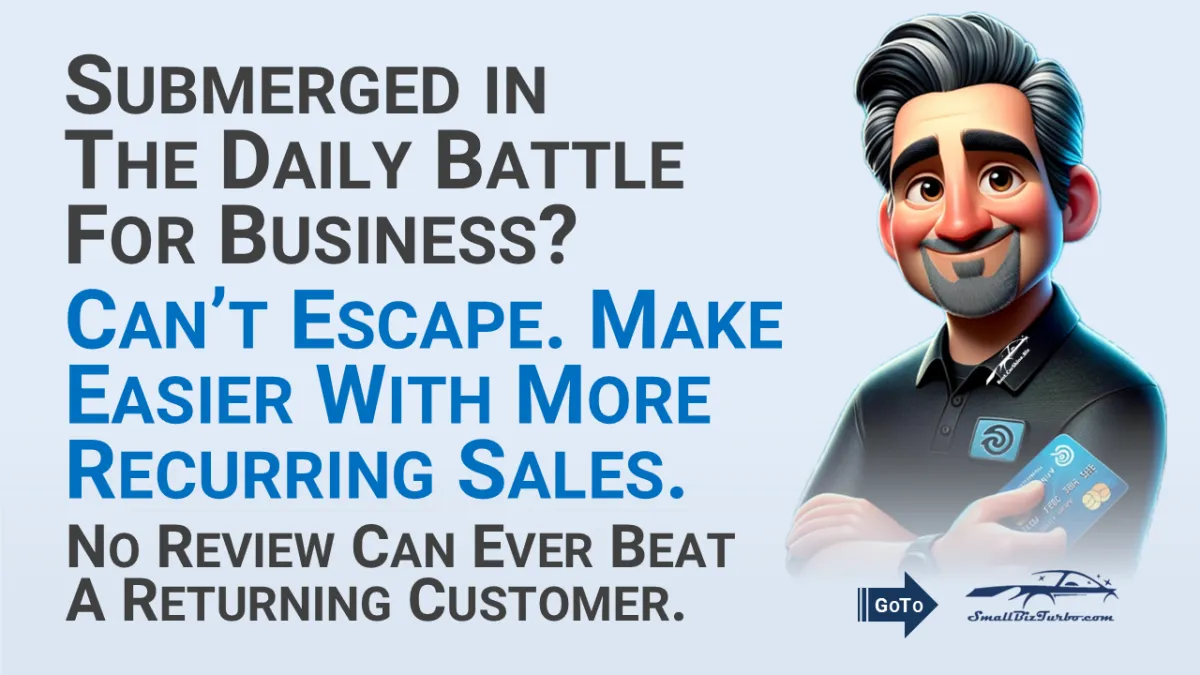
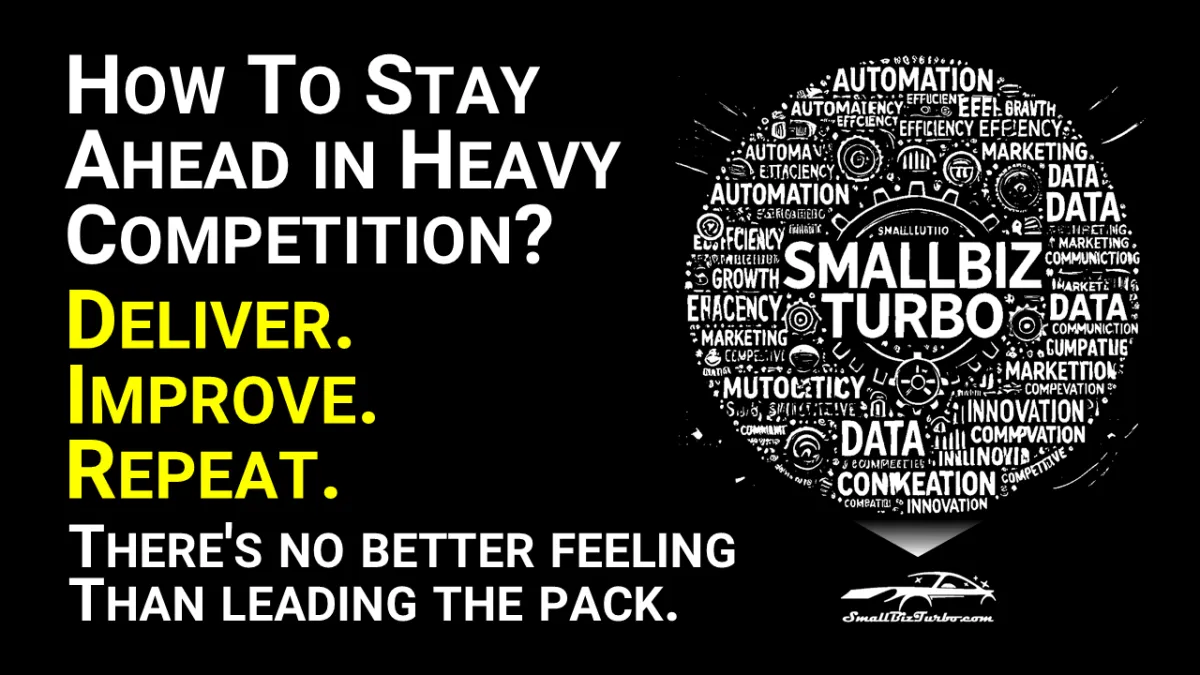











LinkedIn
Facebook
X
Instagram
Youtube
TikTok